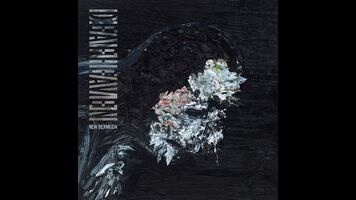With New Bermuda, Deafheaven expands beyond metal’s confines

In the run-up to the release of Deafheaven’s third album, New Bermuda, the dialogue swirling around the band reached a fever pitch. In the wake of its breakthrough sophomore album, Sunbather, the band was worshipped and scrutinized in equal measure. All this chatter was the product of its rise to fame, which included scoring a spot in an Apple product announcement and having the best-reviewed record of its release year. But that kind of adulation isn’t commonplace for metal bands, let alone black metal bands. Given the genre’s extreme nature—and its even more extreme practitioners—the fact that Sunbather was able to blend metal, shoegaze, and post-rock so adeptly had many considering that there was something more to music generally obsessed with grim, frostbitten kingdoms. But, for metalheads, there were a million reasons to call the band into question, from its music to its band members’ haircuts.
Deafheaven’s decision to join Anti- Records, the indie-rock focused sister label of Epitaph Records, give its detractors even more fodder for critique. That being said, it’s just as big of a move for the label itself, making Neko Case and Wilco become bedfellows with a band that trades in blast beats and harsh, shrieking vocals. But, despite all the reasons New Bermuda shouldn’t be a metal record, it’s the most loving homage to the genre Deafheaven’s ever made.
As guitarist Kerry McCoy stated, when the band went into the studio for New Bermuda, it felt pressure from existing expectations, but instead of recreating Sunbather it opted to incorporate far more influences into its arsenal. While a simplistic description of Sunbather would be piercing black metal mixed with ambient washes of delay, here the latter is almost entirely excised. In its place are piano interludes and lengthy prog-rock intros. And for the metal parts, McCoy’s brought in the thrash riffing of Slayer and Morbid Angel in order to diversify his attack.
Opening the record with “Brought To The Water,” New Bermuda launches quickly into a black metal assault that sees vocalist George Clarke growl unendingly. It quickly spins off into thrashy riffs and melodic solos, all before closing out with haunting piano line that slightly resembles the hook of Sixpence None The Richer’s “Kiss Me.” These ambient detours are commonplace throughout New Bermuda, with “Baby Blue” featuring a prog-like opening and an ending that recalls Godspeed You! Black Emperor, but it’s “Gifts For The Earth” that is the biggest curveball.
McCoy had claimed there was an Oasis influence present on New Bermuda, and “Gifts To The Earth” proves that wasn’t just talk. It’s a song that’s constant through-line is a riff that could have been culled from a ’90s alt-rock record, though Clarke is still screaming atop the band’s Britpop inspired beauty. When it seamlessly transitions into chugging, palm-muted riffs, it shows the ease with which Deafheaven can jump from one style to another, and how effortlessly the band makes each of the album’s five songs into its own epic journeys.
It’s hard to predict whether New Bermuda will be as divisive to certain pockets of the music world as its predecessor, but the one thing that is certain is that it’s the second masterwork entered into the band’s oeuvre. While it would be hard for any band to reach the monolithic heights of Sunbather, Deafheaven found a way to offer a different kind of triumph. New Bermuda doesn’t break down the walls of metal, instead it expands its confines, allowing Deafheaven to include subgenres that rarely mix while injecting more outside references. Ultimately, New Bermuda proves just how progressive of a genre metal can be, purists be damned.